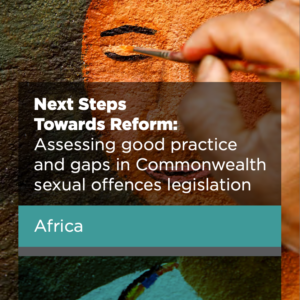The United Republic of Tanzania’s sexual offences laws are in the Penal Code 1981 (as amended) (PC). The Sexual Offences Special Provisions Act 1998 (SOSPA) amended the sexual offences division of the Penal Code. Those amendments added new offences and modified some existing sexual offences, such as rape and indecent assault. The Evidence Act 1967 (as amended) applies to criminal matters including sexual offences.
Some of the amendments made to the PC by the SOSPA in 1998 were positive, including specifying that for the crime of rape, evidence of resistance such as physical injuries to the body is not necessary to prove that sexual intercourse took place without consent. It also specified that men who abuse a position of authority or trust to commit rape will be subject to the maximum penalty.
However, some other amendments made by SOSPA increased the gap between Tanzania’s sexual offences laws and good practice. In particular, SOSPA significantly increased the penalties for consensual sexual activity that is most associated with LGBT+ people. Tanzania criminalises private, consensual same- sex sexual activity under the PC, including the ‘unnatural offences’ of ‘carnal knowledge of any person against the order of nature’ and ‘permit[ting] a male person to have carnal knowledge of him against the order of nature’. Laws that criminalise consensual same-sex sexual activity should be repealed and all non-consensual sexual acts, including anal ‘rape’, should be included in the general sexual assault provisions, such as ‘rape’ and ‘sexual assault’, as well as in child sexual offences. All of these crimes should be gender-neutral.
In most of the other areas assessed in this research, Tanzania’s sexual offences legislation also fall short of meeting good practice standards for human rights compliant laws. For example, rape is limited to penile penetration of a woman, there are some exceptions for marital rape and there are discriminatory evidentiary rules, such as allowing evidence of prior sexual conduct to be used to attack the credibility of a complainant. ‘Consent’ is not defined. There are only limited child sexual offences and there are no close-in-age defences to protect young people from being prosecuted for consensual sexual activity with their peers.
Tanzania is a state party to relevant international and regional human rights treaties, including the Convention on the Elimination of All Forms of Discrimination against Women, Convention on the Rights of the Child, Convention on the Rights of Persons with Disabilities and International Covenant on Civil and Political Rights. It has not joined the Convention against Torture and Other Cruel, Inhuman or Degrading Treatment or Punishment. Tanzania is also a party to the African Charter on Human and Peoples’ Rights and the Protocol to the African Charter on Human and Peoples’ Rights on the Rights of Women in Africa (Maputo Protocol).
Read more about the criminalisation of LGBT people in Tanzania.
The full assessment of Tanzania is available here.



